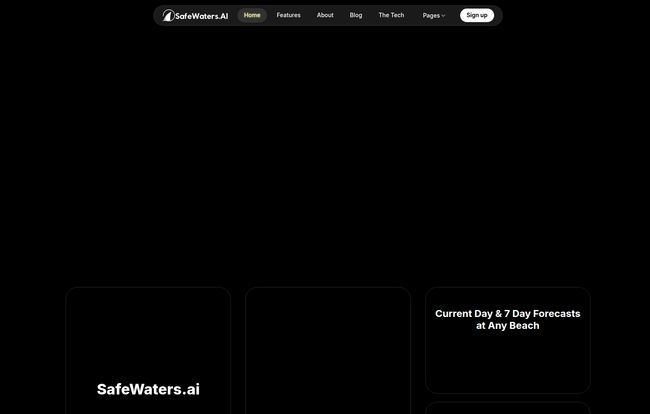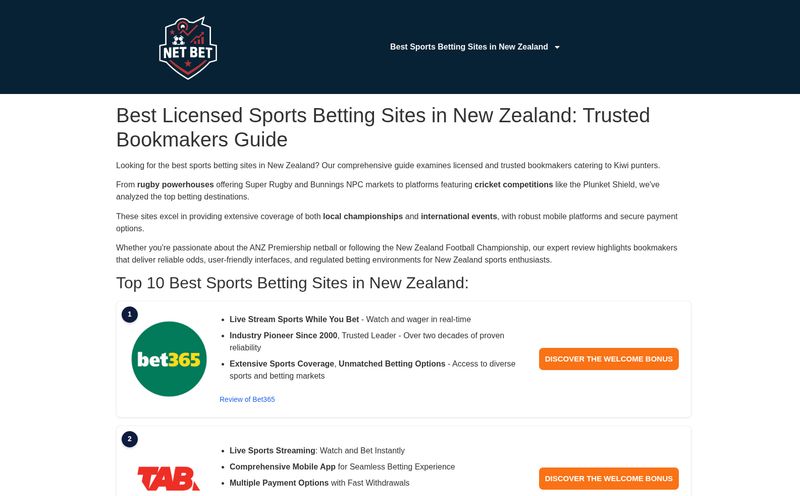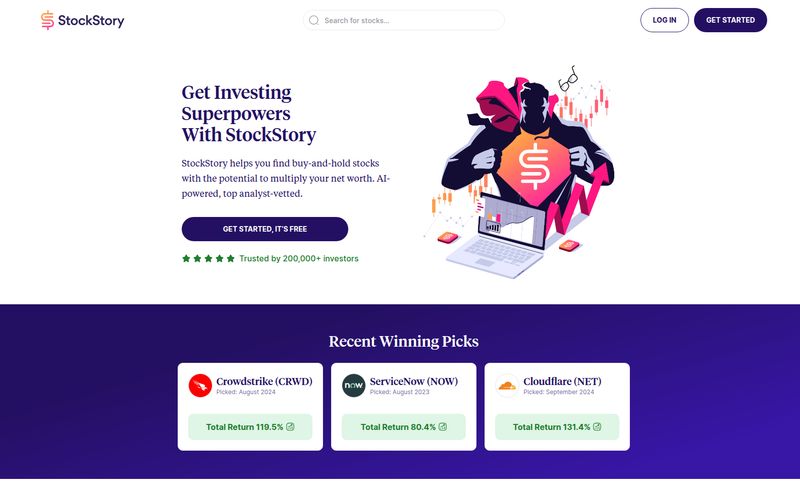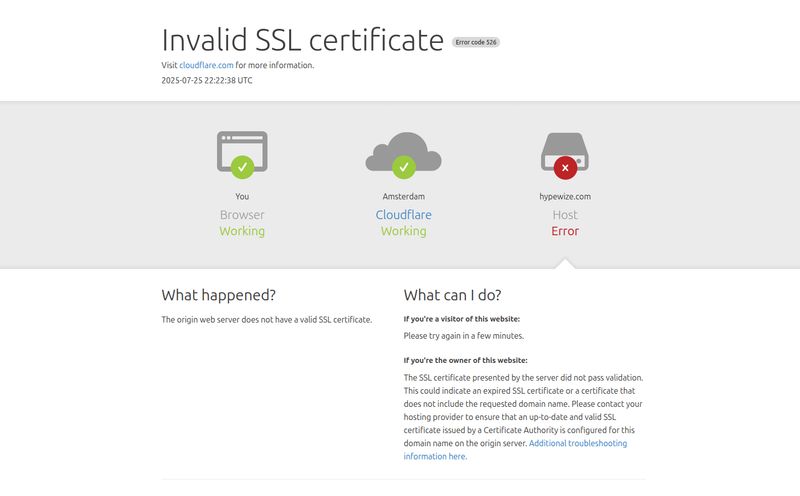Anyone who’s spent time in the ocean, really spent time in it, has had The Thought. You’re floating on your board, legs dangling in the cool, murky water, waiting for the next set. And a little voice in the back of your head whispers... what’s down there with me? For most of us, it’s a fleeting moment of primal fear, easily dismissed. But it’s always there.
For years, our only defense against this fear has been a mix of local knowledge, gut feelings, and maybe a quick glance at the news. But we're in an age where data is king. We have apps that tell us when it’s going to rain down to the minute, so why not an app that gives us a heads-up about a different kind of potential hazard? Enter SafeWaters.ai, a platform that’s trying to do just that. I’ve been in the SEO and tech game long enough to see a thousand “revolutionary” apps, so my skepticism meter is always on. But this one… this one piqued my curiosity.

Visit SafeWaters.ai
So, What Is This SafeWaters.ai Thing, Anyway?
At its core, SafeWaters.ai is a shark attack risk forecasting tool. Think of it like a weather app, but instead of predicting cloud cover and precipitation, it’s predicting the likelihood of a shark encounter at any given beach. It crunches a massive amount of information to give you a simple, 7-day forecast of the risk level. The goal is to give people like surfers, swimmers, and even local beach authorities another data point to help them make smarter decisions before they hit the water. It’s not about creating fear; it’s about providing information. A very modern approach to an age-old concern.
Peeking Under the Hood: The Tech Behind the Forecast
This isn't just some guy in a shed looking at tide charts. The website mentions that SafeWaters.ai is built on “Peer Reviewed Technology,” which is a good sign. It suggests some level of academic or scientific rigor went into this, which I appreciate. The platform’s AI model is fed a diet of over 200 years of historical shark attack data. That’s a lot of history. It cross-references this with marine weather data—things like water temperature, currents, and visibility, which are all known to influence shark behavior.
The company claims an 83% accuracy rate in its testing when looking back at previous attacks. Essentially, in 83% of historical incidents, their model would have flagged the day as “high risk.” That’s a pretty impressive number. It’s not 100%, and we’ll get to that, but it’s a statistic that definitely makes you lean in a little closer.
What SafeWaters.ai Offers on Day One
So what do you actually get when you use the tool? It’s pretty straightforward, which is a big plus in my book. No one wants to fiddle with a complicated app when they’re just trying to decide if it's a good day to catch some waves.
Global 7-Day Forecasts
The main event is the 7-day risk forecast. You can apparently check any beach around the world, which is ambitious and incredibly useful if true. Whether you’re surfing your local break in California or planning a holiday to Australia, you can get a quick look at the potential risk. This is the kind of practical feature that could make it a go-to tool for ocean-loving travelers.
An Integrated Chatbot
The site also mentions a chatbot. I'm guessing this is a way to quickly ask questions like “What’s the risk at Bondi Beach tomorrow?” or “Tell me about recent activity in Florida.” If it’s well-executed, this could be a much faster way to get information than navigating through menus. A good chatbot feels like talking to an expert; a bad one feels like arguing with a toaster. Let’s hope for the former.
The Reality Check: Strengths and Weaknesses
Alright, let's get down to brass tacks. No technology is perfect, and it's important to see both sides of the coin. I’ve seen enough over-hyped tech to know that you have to read the fine print.
On one hand, the potential here is obvious. Giving people access to this kind of data is a net positive. As the International Shark Attack File (ISAF) data shows, attacks are rare but they do happen, and certain conditions can increase the odds. An 83% accuracy rate is nothing to scoff at. It means the model is clearly identifying significant patterns. It's a tool for awareness, and awareness is always the first step to safety.
"An unprovoked shark attack is defined as an incident in which an attack on a live human occurs in the shark’s natural habitat with no human provocation of the shark."
- International Shark Attack File, Florida Museum
However, we have to talk about that other 17%. The platform itself notes that forecasts are not guarantees. An AI is only as good as its data, and historical data can't account for every variable. What about a new environmental factor that isn’t in the 200-year dataset? Or just the sheer unpredictability of a wild animal? Relying solely on this app and ignoring your own instincts or official beach warnings would be a huge mistake. It’s a powerful new tool for your toolbox, but it’s not a magic shield. And right now, some of its most exciting features are still just that—future features.
The Future is Here (Almost): Drones and Shark Tracking
This is the part that gets the tech geek in me excited. SafeWaters.ai has teased a couple of incredible future updates that could be total game-changers.
First, Shark Spotting Drones Live Feed. Imagine being able to pull up a live drone feed of the water at your beach before you even leave the house. That’s next-level situational awareness.
Second, Tagged Shark Tracking & Pattern Predictions. This is where it gets really interesting. By integrating real-time data from tagged sharks, the AI could move from historical prediction to near-real-time forecasting. Seeing the actual movement patterns of known sharks in the area? That’s the kind of data that could genuinely revolutionize beach safety management.
Of course, these are listed as “future features,” and in the tech world, “future” can mean anything from “next quarter” to “never.” But the ambition is exciting.
Let's Talk Money: The SafeWaters.ai Pricing Mystery
Here’s the million-dollar question: what does it cost? As of my review, there’s no pricing information on their website. This isn’t unusual for a new tech platform, but it leaves us to speculate. Will it be a free app with ads? A monthly subscription model for pro users (like dedicated surfers or divers)? Or will they target B2B sales, selling the data service to coastal municipalities and lifeguard services?
My guess? Probably a tiered approach. A free, basic forecast for the general public, with a premium subscription unlocking more detailed data, alerts, and those cool future features when they launch. For now, we’ll have to wait and see.
Is This Shark Risk App for You?
So, who should be paying attention to SafeWaters.ai? The list is pretty long, actually.
- Surfers and Divers: This is the most obvious group. Getting a heads-up on high-risk conditions before paddling out could become a standard part of the pre-surf routine, right up there with checking the swell and wind.
- Beach-Going Families: Parents who want a little extra peace of mind before letting their kids splash in the shallows might find this reassuring.
- Local Authorities: Lifeguard crews and coastal managers could use this data to inform their staffing decisions and when to post warnings.
It’s for anyone who respects the ocean and wants to go in with their eyes wide open.
Answering Your Burning Questions
How accurate is SafeWaters.ai, really?
They claim an 83% accuracy rate in retrospective testing, meaning their AI correctly identified conditions as "high risk" for 83% of known past incidents. It's a strong indicator, but remember, it’s not a guarantee and should be used as one tool among many for assessing safety.
Is the app free to use?
Currently, there is no public pricing information. It might be free, have a subscription, or be a service sold to organizations. We'll have to wait for an official launch or announcement to know for sure.
Where does all the data come from?
The AI model uses over 200 years of historical shark attack data combined with marine weather information. Future versions plan to incorporate live data from tagged sharks for even greater accuracy.
Can I check the forecast for my small, local beach?
The platform claims to offer global beach coverage. The accuracy might vary based on how much historical data is available for a specific location, but you should be able to look up most established beaches.
When will the drone feeds and live tracking be available?
These are listed as "future features" with no specific release date. In the world of tech development, it's best to focus on the features available now and see these as exciting potential upgrades down the road.
My Final Verdict on This Beach Safety App
So, what’s my takeaway? I'm cautiously optimistic. I think SafeWaters.ai is a fascinating application of AI to a real-world problem. It’s a step forward in how we can use data to coexist more safely with wildlife. It democratizes information that was previously only available to a few marine biologists or was simply locked away in databases.
Is it going to eliminate shark encounters? Of course not. But that’s not the point. The point is to add a layer of data-driven awareness to our decision-making. If it stops even a handful of people from paddling out in exceptionally high-risk conditions they were unaware of, then it’s a success. I’ll be keeping a close eye on this one, especially as those futuristic features start to roll out. For now, it’s a promising new tool in our eternal, respectful negotiation with the big blue.
Reference and Sources
- International Shark Attack File - Florida Museum
- Using AI to Protect Marine Wildlife - National Geographic



